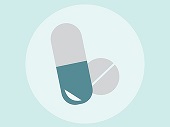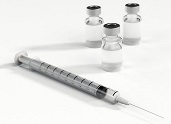Prostatitis Treatment: Should You Use Keflex or Not?
Date:2020-02-06 click:0
Prostatitis is a complex pathological change of prostatic inflammation, immunity, and neuroendocrine involvement caused by a variety of complex causes and inducements, leading to diseases with urethral irritation symptoms and chronic pelvic pain as the main clinical manifestations. So can Keflex Capsule Treat the prostate?

Keflex capsules inhibit or kill bacteria by inhibiting the transpeptidase activity of bacteria. The compatibility of Keflex and trimethoprim improves the antimicrobial ability, delays the emergence of drug resistance, and reduces the oral dose. Keflex is mainly used for penicillin-resistant Staphylococcus, Streptococcus, Pneumococcus, Escherichia coli, and other infections.
It mainly treats urinary tract infection, respiratory tract infection, ear, nose and throat infection, gastrointestinal tract infection, gynecological and obstetric infection, oral infection, skin, soft tissue infection, and other infections. Prostatitis is a kind of inflammation of urinary tract infection. It is a male-specific reproductive organ disease.
In addition, because chronic prostatitis makes prostatic tissue osmotic barrier, most antibiotics can not reach effective therapeutic concentration through the barrier. The cure rate is low and easy to recur. Therefore, doxycycline, erythromycin, rifampicin, Keflex, and quinolones can be selected. Antimicrobial ion penetration and periprostatic injection can also be used for treatment.
Injection therapy

Because the systemic use of antibiotics in the prostate is not easy to achieve effective concentration and affect the curative effect, there is a direct injection of antibiotics into the prostate. The specific method is to use gentamicin, kanamycin, pioneering mycin, either alone or in combination, directly injected into the prostate through the perineum, or directly injected into the prostate lesion under the guidance of ultrasound.
Physical therapy
Physiotherapy mainly utilizes the thermodynamic effect produced to congest deep tissues, improve blood circulation, strengthen the nourishment of local tissues, accelerate the absorption and removal of inflammatory products, which is conducive to the dissipation of inflammation.
However, if sensitive antibiotics can not relieve symptoms after a week, it is necessary to change the drug treatment in time. If conventional antibiotic therapy is ineffective, and patients who have already had drug resistance can take conservative Chinese herbal medicine Diuretic and Anti-inflammatory pill orally. It should be noted that this pill will not produce any drug resistance, so it can be safely taken without worrying about the growth of intestinal drug-resistant bacteria.

In addition, under the action of channel ushering drug, the effective concentration of Diuretic and Anti-inflammatory Pill can reach the lesion directly, remove the inflammation of the genitourinary tract from the root, restore the normal function of the prostate, and prevent a recurrence.
In fact, the clinical diagnosis of chronic prostatitis is not a single disease but a group of diseases with abnormal urination, pain, and discomfort in lower abdomen and perineum, prostatic fluid leukocytosis (also normal), sexual dysfunction and so on.
Each patient's reactivity and recognition of prostatitis are different, so it is worth trying drugs that can control the inflammatory reaction of the prostate and coordinate the functional state of surrounding tissues and organs so as to improve the symptoms of patients.

After a period of treatment, patients will be very happy when the symptoms of discomfort improve significantly, but this does not mean that the disease has been cured. Patients must continue to treat and finish the course, so that changes in local tissue structure and function, especially the abnormal immune function caused by the long-term chronic inflammation can be restored.



